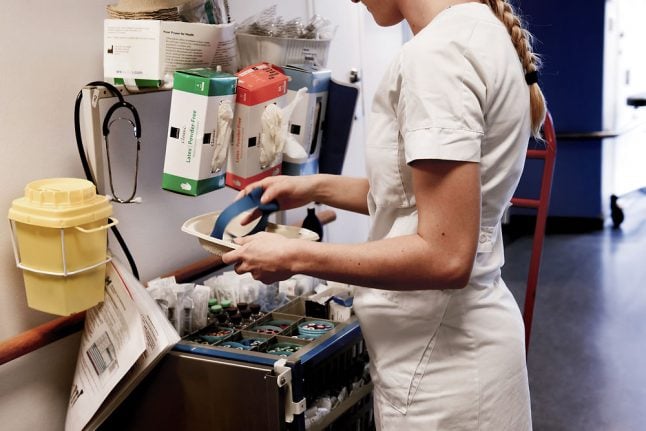The country's health service is concerned about a future shortage of nurses, with the primary healthcare professionals already in short supply.
“We can already see that we have challenges with recruitment in a number of places. Looking forward, there are going to be many, many more elderly people,” said Anders Kühnau, chairperson of the Central Jutland Region health authority and head of the national salaries committee for the health service.
“This means we will have a real shortage of nurses in the coming years if nothing is done now,” Kühnau added.
Suggestions offered by the Danish Nurses’ Organization (Dansk Sygeplejeråd) and National Association of Nursing Students (Sygeplejestuderendes Landssammenslutning) would be in addition to an already-agreed political measure which aims to increase the number of nurses in Denmark by 1,100.
The 1,100 figure primarily be achieved by increasing the number of admissions to the country’s nursing vocational degree programme.
Meanwhile, the two organisations have suggested scrapping planned budget cuts to nursing degrees, ensuring full-time employment for newly-qualified nurses and improving wages and working conditions.
The latter of those three measures would attract more nurses to Denmark’s public health service, the organisations said.
But Denmark’s Regions, the elected regional authorities responsible for operating the country’s hospitals, say they are restricted by existing budgets.
“We do not have the money in Regional budgets for a wage increase or better working environments. So that is something the government and Parliament will have to find the money for, if it is going to happen,” Kühnau said.
“We don’t know exactly how many nurses we are going to be short. But we know we are going to be short of nurses.
“So it is important that more people complete the qualifications and that more nurses who are currently working outside of our health service return to it,” he continued.
The suggestions made by the two organisations would boost nurse numbers by 2,400 by 2026 in addition to the 1,100 already targeted by the political agreement, Ritzau writes.
READ ALSO: Denmark's Regions set to be disbanded after 12 years



 Please whitelist us to continue reading.
Please whitelist us to continue reading.
Member comments